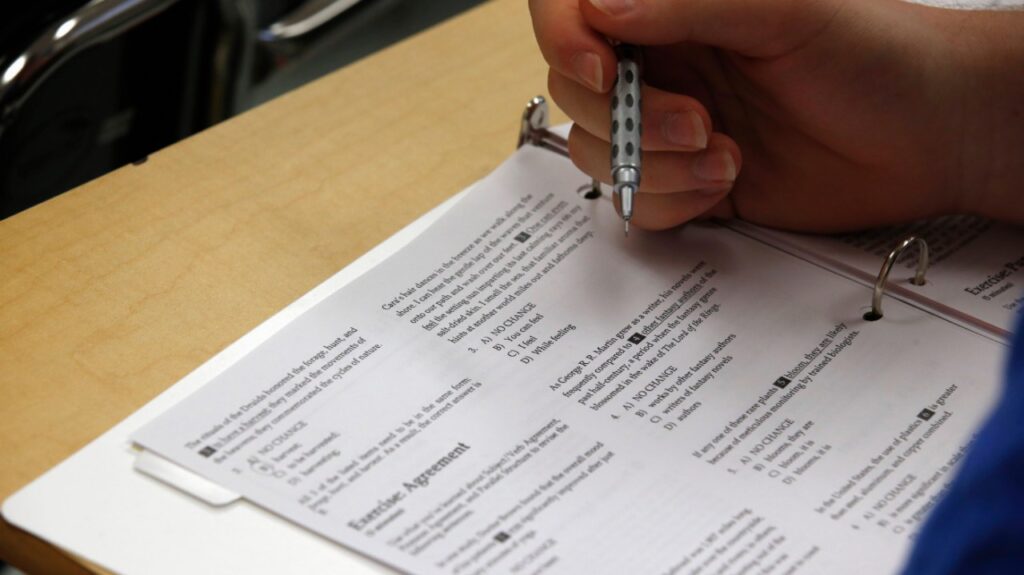Every parent and teacher is aware of students' anxiety about the high-stakes test of college admissions. In recent years, universities have been experimenting with eliminating common test requirements for entrance exams, arguing that the SAT and ACT do not capture the diversity of students' academic backgrounds and aptitudes. Many saw these moves as further necessary after the Supreme Court ruled that universities could not use affirmative action in admissions.
But as the University of Texas at Austin, Brown, Yale, and MIT recognize the need for some form of testing and reimpose the requirement, they risk once again discriminating against certain segments of their student body. Do we have to choose between diversity and objective evaluation of college admissions?
I think the answer is no, but that doesn't mean we should rest content with returning to the status quo. Universities should break the monopoly of rigid SAT/ACT tests and embrace standardized tests that reflect the breadth and diversity of America's educational landscape.
Universities should welcome better assessment of the rapidly growing population of homeschool and classical school students, who are increasingly becoming a minority.
From 2017 to 2023, the number of students learning from home increased by an astonishing 51%. 41% of homeschoolers are non-white, and Black families in particular are rushing to homeschool their children during the pandemic. In fact, the number of Black children learning from home jumped from 3.3% in spring 2020 to 16.1% by the end of the same year. A significant number of students, regardless of race, receive a classical education. One of the largest homeschool networks, Classical Conversations, saw a 20% increase in enrollment from 2020 to 2023.
Classical schools follow a similar trajectory. New classical schools are growing at a rate of 5% per year, including many urban classical schools enrolling large numbers of students of color, and existing schools are rejecting applicants due to lack of space. is common.
However, homeschool and classical school students are clearly underserved by the current testing system. Public schools teach to the test, which often means approaching curriculum and lesson plans as a way to prepare for the SAT or ACT. Homeschool and classic school families pursue different teaching methods and priorities, which can result in students underperforming on tests.
However, this does not mean that they are not ready for college. They need to recognize that they have been prepared differently for university in ways that are not recognized by the current exam system.
For example, imagine a classically educated student whose parents decide to have him study great literature, philosophy, and theology rather than current events or politics. When you take the SAT test and are faced with reading comprehension samples chosen by the College Board, such as those of Sen. Bernie Sanders (R-Vt.) and Sen. Ted Cruz (R-Texas), you lose confidence in your interpretation strategies. maybe. But that same student will feel at ease when faced with passages from Plato and George and his Eliot.
This vignette illustrates an often overlooked fact. These tests do not simply measure context-independent skills; they reflect educational choices and values that are not shared by all students. We would do well to remember that before the establishment of the University Commission, entrance examinations were based on students' Latin translation abilities.
I'll leave it to others to decide whether Sanders or Plato are better prepared for university studies, but when it comes to high-stakes exams, students have more options, and the current Test monopoly is not the only criterion for university suitability.
One option is a relatively new alternative assessment called the Classic Learning Test (full disclosure: I am an unpaid advisor to the Classical Learning Test academic committee). The Classical Learning Test is suitable for many homeschoolers and classical school students because it measures a student's ability to engage with the great poets, philosophers, novelists, scientists, and mathematicians of the past, rather than just “skills.” I am.
Additionally, research has shown that the SAT and ACT are not the only useful measures of college aptitude. For example, a comparative study of the Classical Learning Test and the SAT found that not only do both tests measure similar skills using different means, but that scores on the two tests have a high correlation of .89. Ta.
If we are to return to high-stakes testing in a world without affirmative action, we must not continue to lock applicants into a one-size-fits-all testing system that favors certain educational models over others. Universities must break away from their monopoly and begin welcoming alternative exams that reflect the diverse and changing realities of this country's educational landscape.
Jennifer Frey is dean of the Honors College at the University of Tulsa.
Copyright 2024 Nexstar Media Inc. All rights reserved. This material may not be published, broadcast, rewritten, or redistributed.


